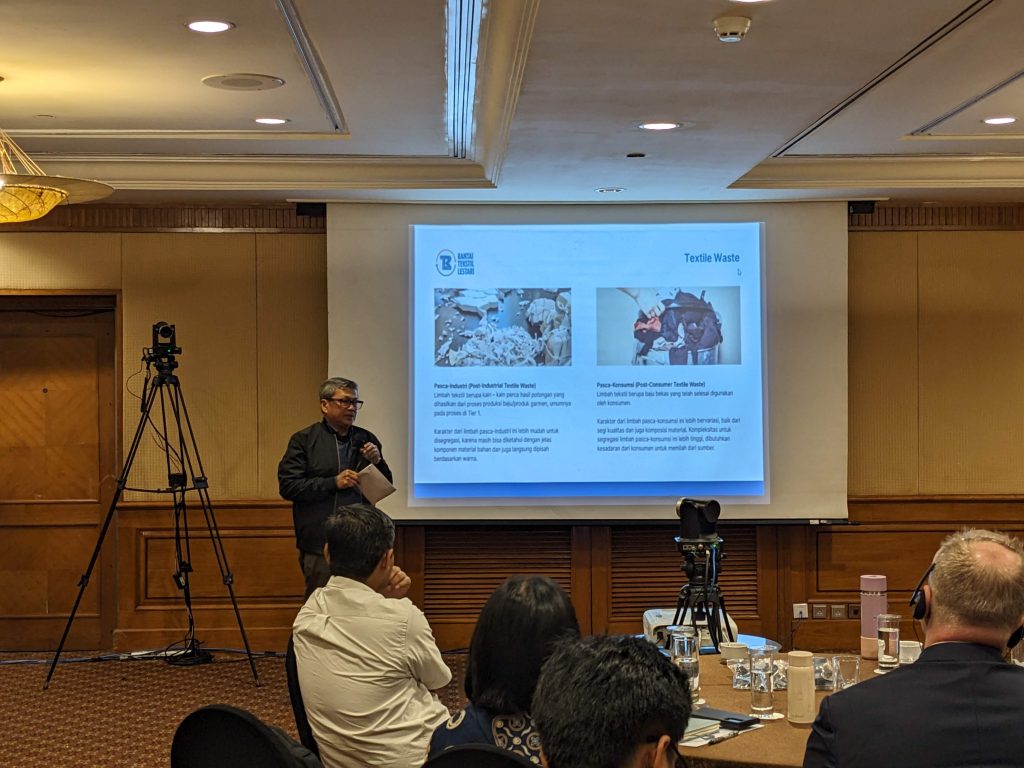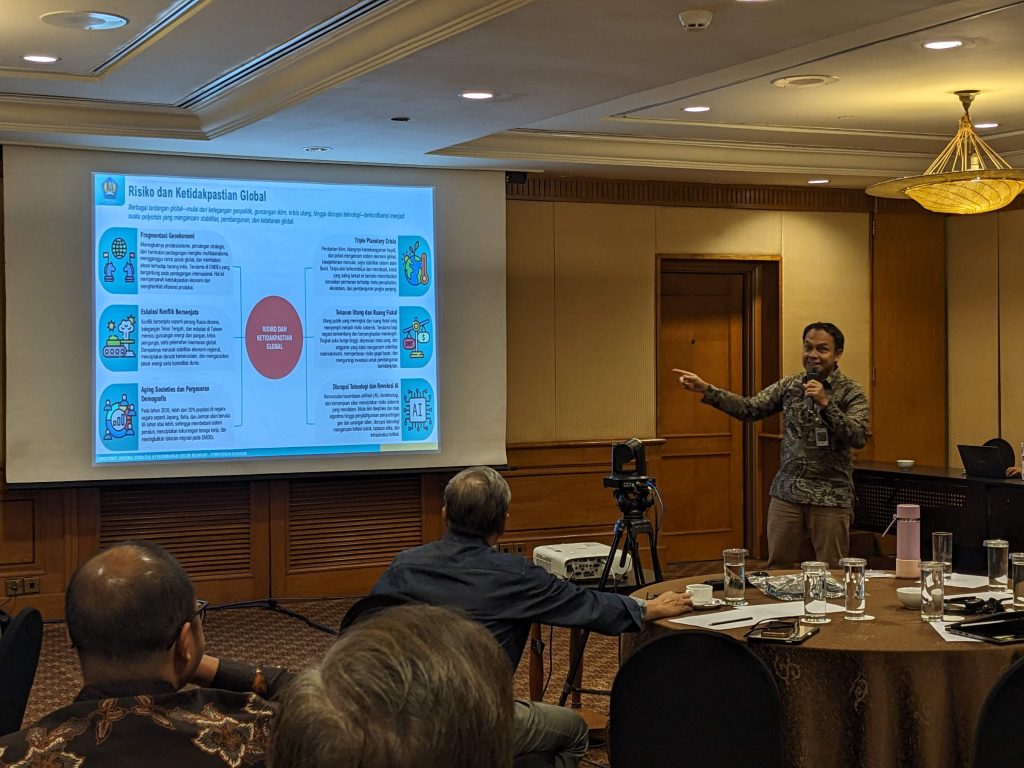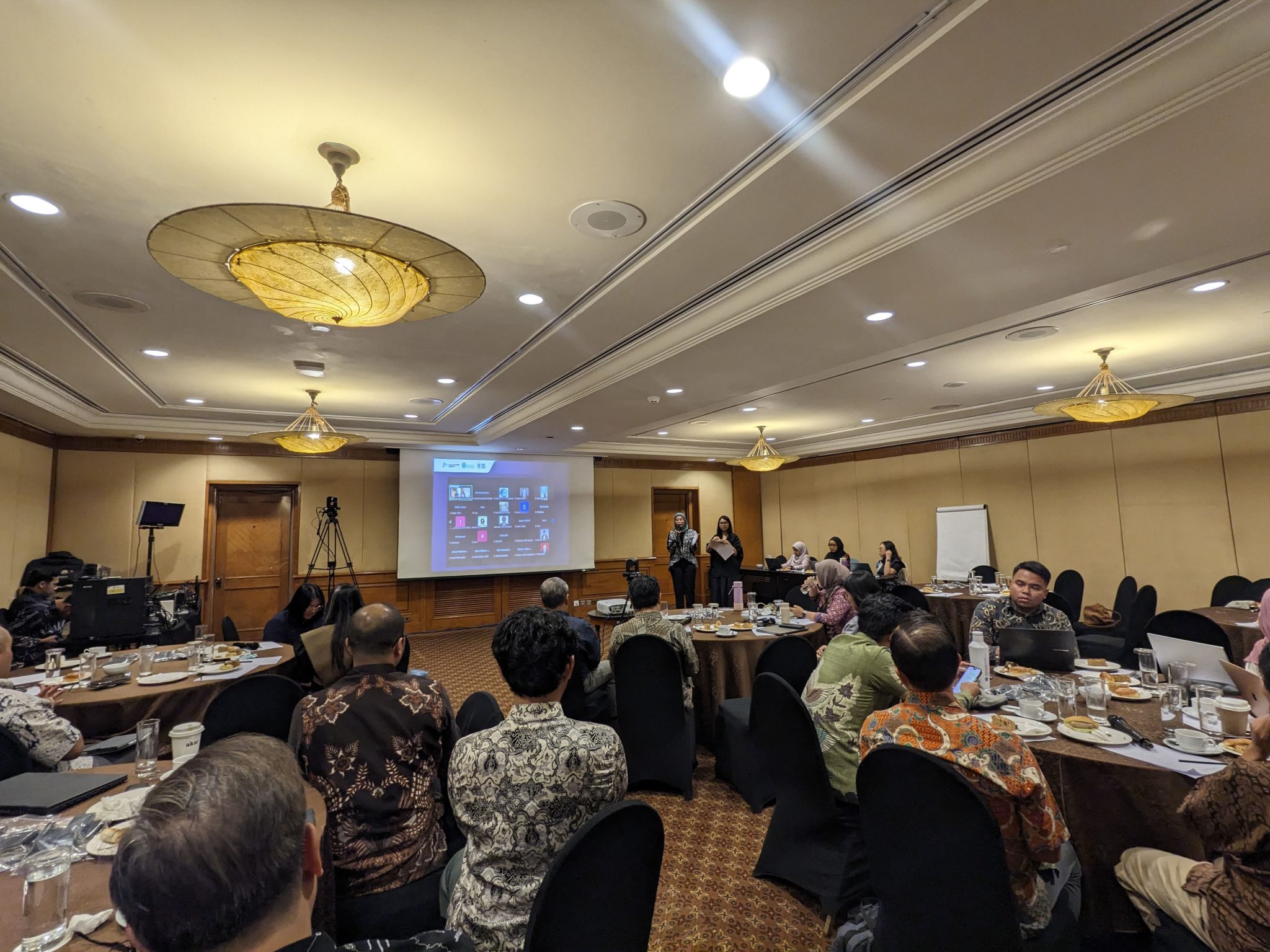On 19 September 2025, the Ministry of National Development Planning (Bappenas), Rantai Tekstil Lestari (RTL), and the Global Green Growth Institute (GGGI), with support from the Government of Finland, hosted a Focus Group Discussion on Recycled Textile and Market Development in Indonesia. The event brought together policymakers, industry leaders, recyclers, academics, and international partners to chart a path toward a competitive, sustainable recycled textile ecosystem.
Why This FGD Matters
Indonesia’s textile industry stands at a crossroads. Global shifts, especially the European Union’s Ecodesign for Sustainable Products Regulation (ESPR) and the upcoming Digital Product Passport requirements, are creating new market opportunities for recycled textiles. Yet, as highlighted by participants, domestic challenges such as weak post-consumer waste collection, lack of reliable data on textile waste, high operational costs, and illegal imports of used clothing are holding back the industry.
The roundtable’s goal was clear: move from discussion to action by identifying policies, incentives, and financing mechanisms to strengthen Indonesia’s recycled textile sector.

Key Messages from the Opening Session
Embassy of Finland: Mr. Temu underscored the EU–Indonesia Comprehensive Economic Partnership Agreement (CEPA) as a gateway to boosting textile trade and reminded participants of the need to demonstrate the commercial benefits of circularity.
Rantai Tekstil Lestari: Mr. Basri Kamba issued a strong call for immediate pilot projects and concrete government incentives, warning that illegal used clothing imports threaten the viability of local recyclers.
Global Green Growth Institute: Ms. Vidya Fauzianti positioned GGGI as a partner in building real-world models for recycled textiles under the Green Transition Investment Program (GTIP) supported by Finland Embassy.
The Landscape and Solutions
GGGI’s main presentation laid out both the challenges and opportunities for Indonesia:
Global drivers such as the EU’s Circular Economy Action Plan and ESPR are setting a 2027 deadline for compliance with stricter textile sustainability standards.
International best practices from Finland, the Netherlands, and South Korea show the power of separate collection systems, mandatory Extended Producer Responsibility (EPR), and volume-based waste fees to drive recycling.
Key domestic gaps include low market uptake of recycled products, a fragmented waste system, and no comprehensive data tracking textile waste volumes.
GGGI proposed a phased incentive framework:
Quick wins: Green Public Procurement for government uniforms, fiscal incentives such as VAT reduction, and sustainable certification schemes.
Mid-term: Shared infrastructure for collection and sorting, and voluntary EPR pilots.
Long-term: A mandatory EPR system with standardized product design and labeling to ensure circularity from the outset.
To finance this transition, innovative models such as blended finance, demand-backed contracts, and results-based financing were introduced to de-risk investments and attract private capital.

Government and Stakeholder Perspectives
Representatives from the Ministry of Finance outlined existing fiscal tools—tax holidays, import duty exemptions, VAT schemes, and green financing instruments—that could be leveraged for circular economy investments. The Indonesian Environment Fund (BPDLH) presented its revolving funds and grant mechanisms for small enterprises and community waste banks, emphasizing capacity building for upstream supply chains.
Industry practitioners such as PT SuperbTEX and Pable raised the urgent need for financing automated sorting technology and simplifying waste permit processes. Exporters like H&M encouraged framing circularity as an industrial growth opportunity, while academics and BRIN highlighted funding needs for research and the disproportionate environmental impact of textile microplastics.
Next Steps: Turning Dialogue into Action
In her closing remarks, Ms. Anggi Pertiwi Putri of Bappenas reaffirmed the government’s commitment to act on the recommendations. Upcoming steps include:
-
Organizing a business matchmaking event to link recyclers, brands, investors, and technology providers.
-
Developing feasibility studies for pilot projects to test and scale viable business models.
-
Continuing collaboration between government, industry, and international partners to accelerate Indonesia’s circular textile economy.
About the Organizers
This FGD was co-hosted by Bappenas, RTL, and GGGI with support from the Government of Finland under the Green Transition Investment Program. Rantai Tekstil Lestari (RTL) is proud to be part of this multi-stakeholder effort to strengthen Indonesia’s textile sustainability and unlock the potential of a circular economy.


